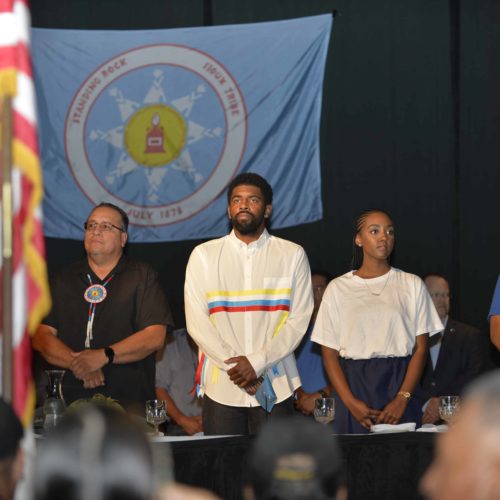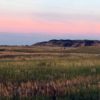Introduction
Some Native Americans have faced significant obstacles to voting — and a U.S. House subcommittee will today conduct a field hearing on the Standing Rock Sioux reservation in North Dakota to hear testimony about it.
Barriers to the ballot box for Native American voters in North Dakota was the subject of an investigation published in October as part of the Center for Public Integrity’s “Abandoned in America” series.
The hearing on Standing Rock is one of a series of field hearings the elections subcommittee of the House Administration Committee is conducting across the country.
Rep. Marcia Fudge, D-Ohio, chairwoman of the subcommittee, said it is “gathering contemporaneous evidence of voter suppression efforts across the country. As demonstrated by the many issues which arose during past election cycles, Native Americans face numerous obstacles exercising their right to vote.”
Fudge and Rep. Rodney Davis, R-Ill., the ranking member of the committee, are expected to attend. Rep. G.K. Butterfield, D-N.C., and Rep. Bennie Thompson, D-Miss., are also scheduled to participate, according to a subcommittee advisory.
The hearing will be held at 10 a.m. in Fort Yates, North Dakota, and is open to the public. It will also be livestreamed on the committee’s website.
The congressional representatives are expected to hear from a panel of witnesses that includes OJ Semans, co-executive director of Four Directions, a South Dakota-based nonprofit that advocates for voting rights, Jacqueline De Leon, a staff attorney at the Native American Rights Fund. Tribal representatives and others who work on Native American voter turnout issues in the Dakotas are also expected to testify.
The Center for Public Integrity’s investigation in October found that between 2008 and 2016, Sioux County, which makes up the North Dakota side of the Standing Rock reservation, averaged the lowest voter turnout rate of any county in the state. Two other counties whose populations are majority Native American had the second- and third-lowest turnout in the state over the same period.
The investigation found several reasons for the low voter turnout. The 2018 election brought a new complication: In an October ruling, the U.S. Supreme Court allowed state voter identification requirements to go into force for the November 2018 election.
A lower court judge had previously found the law’s requirements would disproportionately burden Native American voters, but the state appealed and his ruling was overturned.
North Dakota Secretary of State Al Jaeger, a Republican, has repeatedly said the voter identification requirements aren’t meant to disenfranchise anyone, only to ensure the integrity of elections.
Voting advocates feared the ruling would depress Native American voting turnout, and tribes scrambled to provide identification to members that complied with the requirements. But attention to the situation — in part generated by a roster of celebrities such as Mark Ruffalo and the Dave Matthews Band — propelled a surge of Native American voters to the polls.
The Spirit Lake and Standing Rock Sioux tribes, together with a series of individual plaintiffs, have filed a new lawsuit in federal court over the voter identification requirements.
The lawsuit is still pending.
Read more in Money and Democracy
Money and Democracy
What second-quarter fundraising can tell us about 2020
Presidential campaign finance disclosures help gauge candidate viability and voter enthusiasm.
Money and Democracy
Controversial J&J drug pushed by Trump is nixed from VA’s pharmacy list
Experts question Spravato’s safety and effectiveness.




Join the conversation
Show Comments